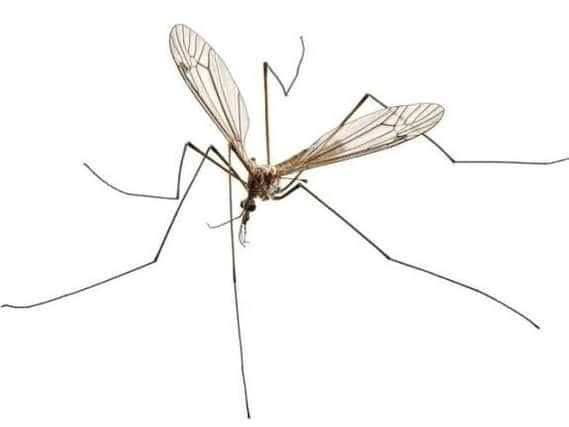Drunk wasps, sex-mad spiders - now a plague of 200 BILLION daddy long legs is heading our way


Millions upon millions of the flying insects are expected to hatch out this autumn – including a giant variety from overseas.
Some 200 billion of the harmless insects, which commonly head into homes, are expected this year because of a warm summer and recent rain, according to charity Buglife.
Advertisement
Hide AdAdvertisement
Hide AdMost of the crane flies hatching out are Tipula paludosa, a species which is around an inch in size and is found across the UK.
But a non-native species, Tipula maxima, which has a leg span of up to four inches, is also spreading north because of warming temperatures.
Buglife’s Rory Dimond said: “They are gradually spreading northwards.
"They are a non-native species, and they come in from the trading points down the south, in areas like Dover and Kent.
Advertisement
Hide AdAdvertisement
Hide Ad“When the summer is warmer they have more chance of wandering between houses and colonising that way.”
Crane fly larvae, known as leatherjackets, live in the ground where they eat roots.
They often prove to be a pest for gardeners as they damage lawns, particularly in spring, and can lead to other wildlife such as birds, badgers and foxes digging into the turf in search of a meal.
There are many species of crane fly in the UK, including some very rare ones, such as the royal splinter crane fly, so named because it only occurs in Windsor Great Park.
Advertisement
Hide AdAdvertisement
Hide AdEarlier this month, it was reported how swarms of drunk, angry and bored German wasps which sting for fun were heading our way while giant, sex-crazed spiders the size of mice are also set to take up refuge in our homes this autumn.